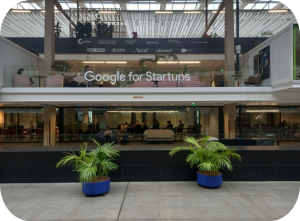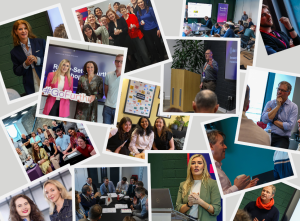Bringing sustainability to your business
By Dr Rosalind Beere
In this piece, I would like to look at sustainability from my own personal perspective, my understanding and reflections on what it means to live as sustainably as possible, including the impact I can see with regard to my own business and the steps I have taken to embrace a core value of sustainability. Finally, my thoughts on the wider issues around the business community from my position as Business Consultant with Furthr – how our clients and founders are helping to solve problems and to develop solutions, to improve our lives. I will also look at the ways in which businesses can become more sustainable right now and into the future.
From a personal perspective, growing up I had no idea about what ‘sustainability’ meant. The closest thing to the environmental concern was ‘don’t litter’, and many households battled with the same issues we face today, with heating costs, but for completely different reasons, and saving the planet was prioritised above the financial burdens. I do remember being brought out by my father to ‘clean up the dodder’, collecting rubbish left by picnickers, to help protect the wildlife, and my Dad was clearly ahead of his time as to what you would call a conservationist. However, through his QSR business, he did in fact invent a new packaging concept in the 1980s that paved the way and moved many a fast-food chain away from disdainful polystyrene boxes to card and grease-proof paper packaging that was recyclable.
Fast forward to present day and every product we buy, we are encouraged to recycle, and we face an increasing variety of bin options in our disposing routines.
For entrepreneurs and business leaders, this is becoming an ever more important focus of their strategic planning and management.
So, what is sustainability? In essence, sustainability means meeting our own needs without compromising the ability of future generations to meet their own needs. In addition to natural resources, we also need social and economic resources.
As a quick go-to guide, here are five things you can do to be more sustainable:
- Limit your food waste.
- Eat more plant-based meals.
- Recycle and compost.
- Leave your car at home.
- Reduce your plastic.
In addition, we have moved on from the simple terms of ‘Reuse, Recycle and Reduce to the 7 Rs of sustainability which are Rethink, Refuse, Reduce, Reuse, Repair, Regift, and Recycle.
Next, I would like to address sustainability at a business level. From my work with Furthr clients we are seeing companies both with innovative solutions around sustainability processes but also new product development concepts which are truly cutting edge on food, energy, tech solutions and so much more. These prospects are derived from shifts in the macro-economic environment and the sustainability focus at a regulatory level, which directly impacts all businesses at every stage of development and all sizes from start-ups to SME’s to MNCs.
What appears to be most important is that we encourage ‘Sustainable Leadership’, which is a style of management that drives solutions for environmental, social, and economic challenges in the world. It recognises leadership as a process of influence and breaks down silos to combine efforts towards change and transformation. The 3 principles of sustainability are the foundations of what this concept represents. Therefore, sustainability is made up of three pillars: the economy, society, and the environment. These principles are also informally used as profit, people and planet. Indeed, as Martin Wolfram, Country Managing Director, Accenture states ‘Organisations are building sustainability into the fabric of their operations – and making social responsibility sustainable.’ However, there is the potential for a serious consensus gap. And it will further widen if CEOs don’t work to embed sustainability in the DNA of their organisations. As well as the positive environmental and societal outcomes, becoming purpose-run and operating sustainably can be a source of competitive advantage. But to unlock the rewards of operating sustainably, companies first need to build strong, trusting and authentic relationships with all stakeholders, and not just their shareholders. According to Boston Consulting Group research, companies that embrace total social impact have on average 12% higher operating margins. Is it because consumers are willing to pay a small price premium for brands whose values align with their own? These are questions we need to ask to understand the implications of the impact on the bottom line, as well as promoting Corporate Social Responsibility at a top level of every company’s strategic focus.
From a practical point of view there are three basic areas to focus on, to begin bringing your organisation into a more sustainable mindset: Water, Waste and Carbon.
Water, waste and carbon are three key areas that have a direct impact on the long-term well-being of the planet. While we all bear some responsibility as individuals, it’s unquestionably industry that drives the highest levels of consumption. Conserving water, eliminating unnecessary waste, and cutting carbon emissions in your business is primarily about minimising your environmental impact, but it also provides a real opportunity to reduce operating costs. In addition, with today’s consumers more interested than ever in supporting sustainable businesses, the smart management of resources can act as a marketing tool with the power to improve your brand image. Results from Nutritics’ 2022 Sustainability Sentiment Index — based on 2,000 respondents across the UK — show that consumers actively want to make more sustainable choices in their consumption patterns and want more transparency from businesses when it comes to their environmental policies and how they communicate these to customers.
- Water
Many of us don’t consider the water footprint of our consumption/operating patterns, but most production of products and services relies heavily on water availability. It’s estimated that 70% of all extracted freshwater is used for agriculture alone, while a further 20% goes to the production and processing industries. Our growing population will require future increases in food production — and increased production will demand larger water supplies. The modern, Western-style diet includes a lot of meat and sugar, both of which require immense volumes of water. Without more effective management of water usage in food, drink and general production practices worldwide, major repercussions are inevitable, including food shortages, rising food prices, famine and geopolitical instability. How to tackle water consumption? The good news is that businesses can start to implement water-efficient practices and reap the additional benefits of reduced operating costs and energy use.
- Waste
It’s hard to overstate the impact of waste and food waste on the environment. The United Nations Environment Programme’s 2021 Food Waste Index found that an estimated 931 million tonnes of food goes to waste every year. Furthermore, the disposal of waste such as food and plastic etc to landfill is one of the biggest contributors of methane to our atmosphere. The best way to deal with waste is to prevent it from happening in the first instance, maximising financial and carbon savings by preventing raw materials from being used unnecessarily.
- Carbon
Global industrial activity is responsible for a substantial proportion of the climate crisis, making it clear that ‘radical, rapid change’ is required to affect a drastic reduction in carbon emissions. It’s impossible to create any strategic climate action plan without understanding exactly where your business’s carbon emissions originate. For many businesses, the majority of their greenhouse gas (GHG) emissions lie outside their own operations. In addition to minimising environmental impact, understanding these emissions also allows organisations to: a) increase corporate accountability, b) be prepared for the advent of potential regulations in the future, c) improve the energy efficiency of end products, potentially at numerous points throughout the value chain, d) evaluate and improve procurement strategies, and see cost reductions as a result, e) be guided by sustainability in future product design, and f) potentially boost sales, since today’s consumer is increasingly attracted to ethical business practices.
In addition to the above, the Corporate Sustainability Reporting Directive (CSRD) is on the immediate horizon. The CSRD is a new EU legislation under which large companies are obligated to publish reports on their environmental and social impact activities. For the first time, sustainability reporting will be made mainstream, placed on an equal footing to traditional financial reporting, independently audited and based on common EU standards. Companies are required to submit a report in January 2024, for the 2023 financial year. This makes it crucial for companies to prepare now, or risk falling behind. In analysing your supply chain in order to identify and fix problem areas, your business can not only comply with the CRSD, but also safeguard against future legislative developments.
Simply put, sustainability is a business approach to creating long-term value by taking into consideration how a given organisation operates in the ecological, social, and economic environments. Sustainability is built on the assumption that developing such strategies fosters company longevity. Irish businesses must mature more quickly into sustainable, future-proof enterprises that significantly contribute to the pressing environmental net-zero deadline of 2030. Pursuing the three themes of leadership, innovation and education will help them achieve this. Visionary leadership with a commitment to shared value The world needs brave, visionary leaders. Business leaders must understand and empathise with sustainability and recognize the imperative for innovation across the business model.



